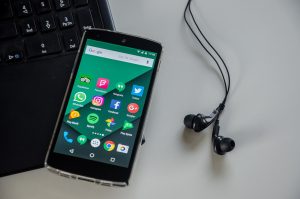Apple Ejected Sony E-Reader App Because They Want a Cut of Sales
![]() Now that Apple has responded in relation to nixing the Sony E-Reader app on iOS devices things have gotten a little bit weirder from the initial coverage. This particular row started on Tuesday morning when The New York Times published a story about how Apple had rejected Sony’s app while leaving other e-readers alone—such as Amazon’s Kindle Digital Market and the Barnes & Noble app.
Now that Apple has responded in relation to nixing the Sony E-Reader app on iOS devices things have gotten a little bit weirder from the initial coverage. This particular row started on Tuesday morning when The New York Times published a story about how Apple had rejected Sony’s app while leaving other e-readers alone—such as Amazon’s Kindle Digital Market and the Barnes & Noble app.
The rejection seemed somewhat odd when it was posited that they were discarded due to some sort of in-app payment dispute; but, according to sources, the Sony app didn’t take in-app payments and instead used the web like the other readers to take payments.
Today, we have an update and a little bit deeper details as Apple has responded to the reaction of readers and industry with coverage at Wired and Arstechnica to choose from,
“We have not changed our developer terms or guidelines,” Apple spokesperson Trudy Muller told Ars Technica. “We are now requiring that if an app offers customers the ability to purchase books outside of the app, that the same option is also available to customers from within the app with in-app purchase.”
Well, that at least quells some speculation.
Right now, Apple clips almost 30% from all in-app purchases, but it was posited that most of the e-readers (such as the remaining Amazon and B&N reader) skipped directly to the web to avoid falling into Apple’s “no in-app purchases net.” However, they might also have been avoiding that huge gouge.
The news gets a little bit darker the deeper we dig, however, which suggests that Apple is in fact stretching their grasp a bit when it comes to in-app purchases and content purchased by the user in general. Speculation has been massive on this matter, but it looks like it might be vindicated by some of Apple’s earlier statements:
Apple also allegedly told Sony that the app couldn’t access content purchased on other Sony Reader devices, which is where most of the outrage was focused. Amazon’s Kindle app and Barnes & Noble’s Nook app are both popular mechanisms for users to download and read books that they have purchased from the respective stores. Many feared that this supposed change in Apple policy would take their e-books away from their iPads, iPhones and iPod touches.
Apple’s second statement indicates that this is indeed the case — sort of. If an app lets users access content that they purchased via Amazon’s website, for example, then that same app must also let users buy the same book via Apple’s own in-app purchase system. If the app developer doesn’t want to use Apple’s in-app purchases to sell content, then the app can’t access content purchased elsewhere either.
If Apple is really telling Sony that they want people to only be able to access content that they paid for on iOS platforms then Apple and I are going to have a problem. I am both a reader of e-books and a publisher, and I frankly don’t see the financial benefit of alienating an entire segment of possible readers just because Apple wants more money.
However, if the second paragraph above is any indication, then this isn’t as bad as everyone seems to be painting it, especially if Apple only changes their rules to incentive people to add an in-app purchasing system. What I’ll be watching for is if Apple then will require that prices on the Apple web store match those of other sites—because as a writer and publisher, what would I do if I had to pay a 30% fee to publish on a particular closed platform? Well, I’d charge 30% more there, of course.
In the past many platforms realized this meant that users would experience a huge convenience fee when they would buy products through their system across the board and they would probably notice. As a result, many of these platforms required their publishers not to increase their prices to absorb the cost.
“Please don’t purchase my content using the in-app purchase mechanism in any of the e-book readers for Apple’s devices,” would I end up saying to my readers. “I lose out on 30% of my royalties. If you’d like to support me, as Apple apparently doesn’t want to, please go through an outlet that actually respects me.” Apple does have an extremely strong following of users, and people won’t really want to have to carry both an iPad and a Nook/Kindle/etc. just to read their e-books at a sane price. But the e-reader products are getting better, like the Nook’s recent enhancements.
This move certainly wouldn’t stop me from allowing my work to be published on their platform; but I can see how it will generate animosity between Apple and Amazon, B&N, and authors alike if they keep restricting our ability to reach readers on their devices. Then again, perhaps I’m overreacting, but Apple might want to clarify their position soon before the e-book publishing giants start shaking their heads.
A message from John Furrier, co-founder of SiliconANGLE:
Your vote of support is important to us and it helps us keep the content FREE.
One click below supports our mission to provide free, deep, and relevant content.
Join our community on YouTube
Join the community that includes more than 15,000 #CubeAlumni experts, including Amazon.com CEO Andy Jassy, Dell Technologies founder and CEO Michael Dell, Intel CEO Pat Gelsinger, and many more luminaries and experts.
THANK YOU









